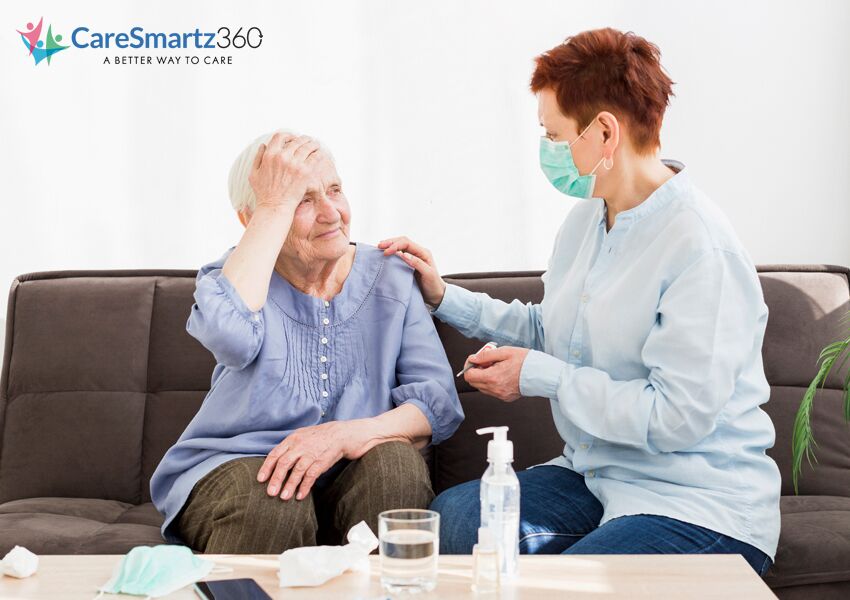
The world is facing one of the biggest crises in the form of the novel coronavirus. With millions of people affected worldwide, there’s no vaccine and medication for this virus to date.
Unlike youngsters, elderly individuals are undeniably at a higher risk of developing severe symptoms of the ailment, which is perhaps the reason why caregivers need to be more cautious at this critical time.
When we talk about the caregivers delivering care for the ones with Dementia, things become more challenging for them as seniors with severe health issues may become critically ill when infected with COVID-19.
Since Dementia doesn’t directly increase the risk of COVID-19, but their behaviour, other health conditions, and less immunity may increase the risk.
We’ve outlined some crucial aspects associated with caring for Dementia patients that every professional and family caregiver ought to know.
What could be more stressing than witnessing your elderly forgetting washing hands and maintaining personal hygiene?
Dementia patients usually forget things and need consistent reminders in the form of handwritten notes or something similar to signboards in the bathroom. Also, you must teach them the right way to wash their hands and ensure they wash for a minimum of 20 seconds.
If required, demonstrate to them how to wash their hands with soap and make them aware of the use of alcohol-based sanitizer for sanitizing hands frequently.
Here’s what you need to do:
Another challenge that I have personally witnessed with Dementia patients is that they start wandering outside the home, which isn’t a good thing these days.
I am making every effort to ensure my grandmother stays inside and even if I have to leave my home for reasons, I prefer calling any of my acquaintances to take care of her.
Make sure the main door of your home is locked and the lock isn’t accessible to the elderly who are in the habit of going outside. Since they forget things easily, there’s a chance that they might go outside, which could increase the risk of contamination.
Make sure you:
You may be aware of the common symptoms that are associated with COVID-19, but you have to be more careful when you are dealing with a Dementia patient.
Increased confusion is perhaps the initial symptom of any underlying illness. If your senior is having symptoms like confusion and fever, you need to get in touch with their medical practitioner.
Apart from this, ensure there are no breathing-related issues and fever in the elderly for which you should rush to the emergency room.
Here’s what you shouldn’t miss:
Diet plays a crucial role when it comes to maintaining good immunity. You may be aware of the fact that elderly individuals are at a higher risk of developing severe symptoms and getting critically ill just because they have weaker immunity.
A healthy diet can be the best option to maintain adequate immunity in adults, which substantially increases the body’s mechanism to fight against diseases.
Include green leafy vegetables in their diet and don’t forget to consider the same for yourself. Plan a diet that contains the right proportion of fats, proteins, and carbohydrates.
Since COVID-19 suspects need to be self-quarantined for a minimum of 14 days; things can become tough for their caregivers. Caregivers must ensure that the elderly should follow a proper guide for quarantine at home.
Here’s what you should be emphasizing:
The current pandemic situation leaves an impact on society and our economy as well. It becomes our duty to protect and ensure adequate safety for the ones who are most vulnerable especially the elderly with severe health conditions.
Preventing the infection is crucial and perhaps the only way to deal with the COVID-19 outbreak particularly for the ones who are at a higher risk.
Our users reported 95% customer satisfaction in 2024. Schedule a personal walkthrough to see CareSmartz360, home care software in action.